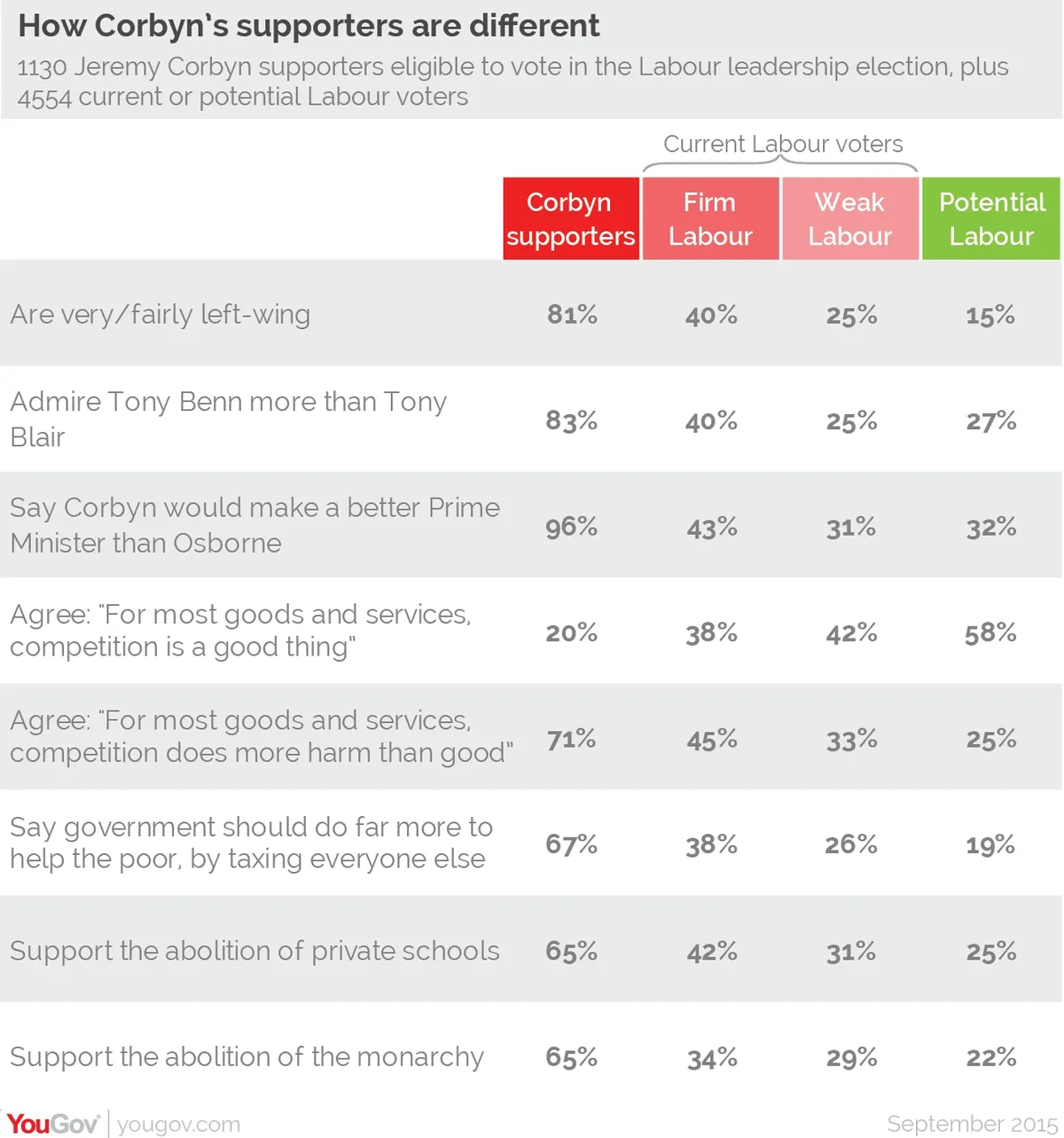Jeremy Corbyn's supporters and the general public are divided by a gulf that is unprecedented in modern British politics
Successful party leaders marry the enthusiasms of their supporters to the mood of the wider electorate. By this test, Jeremy Corbyn looks destined to fail. New YouGov research for the New Statesman reveals that those who voted for Jeremy Corbyn overwhelmingly describe themselves as left-wing. They reject capitalism, and admire Tony Benn more than Tony Blair. Two-thirds of them want to abolish private schools and the monarchy, and favour higher taxes to pay for greater welfare.
Labour’s target voters think none of these things. Nor do many current Labour supporters. The table gives the main findings. The first column sets out the views of those who voted for Corbyn to be party leader. The final three columns are taken from a separate survey of more than 10,000 electors. Just over a quarter would currently vote Labour; a further 20 per cent would consider doing so. To win in 2020, Labour must retain the support of almost all its current supporters and at least half its potential voters.

Our figures show how hard this will be. While 81 per cent of the people who voted for Corbyn say they are “very” or “fairly” left-wing, a mere 15 per cent of potential Labour voters, and just 25 per cent of “weak” Labour supporters do so. (“Firm” supporters are those who identify fairly or strongly with the party, while “weak” supporters would currently vote Labour but don’t identify strongly with it.)
This gulf matters – as the Conservatives know only too well. Their party was unelectable when they were led by William Hague, Iain Duncan Smith and Michael Howard. True, they were up against Tony Blair, New Labour and a steadily growing economy. But, in addition, most voters saw the three Tory leaders as too right-wing – and their political outlook was nothing like as far removed from the public mood as Corbyn’s.
So: should Corbyn tack to the centre and compromise on his long-held views? He has already performed U-turns on a number of issues, such as Europe. He accepts that abolishing the monarchy will have to wait.
However, if he abandons the beliefs he has embraced for more than thirty years, he faces a double risk. On the one hand, the people he needs to attract may reject him as a cynical leader, hiding his true feelings to win votes; on the other hand, those who voted for him may accuse him of betraying the very principles that he proclaimed so clearly in his leadership campaign.
Corbyn’s other option, of course, is to hold firm to his views, make the case for red-blooded socialism, and persuade millions of voters to back his crusade. If he truly believes in it, he should do so – and set out to prove me wrong.
PA image
An edited version of this commentary appears in the current issue of New Statesman








